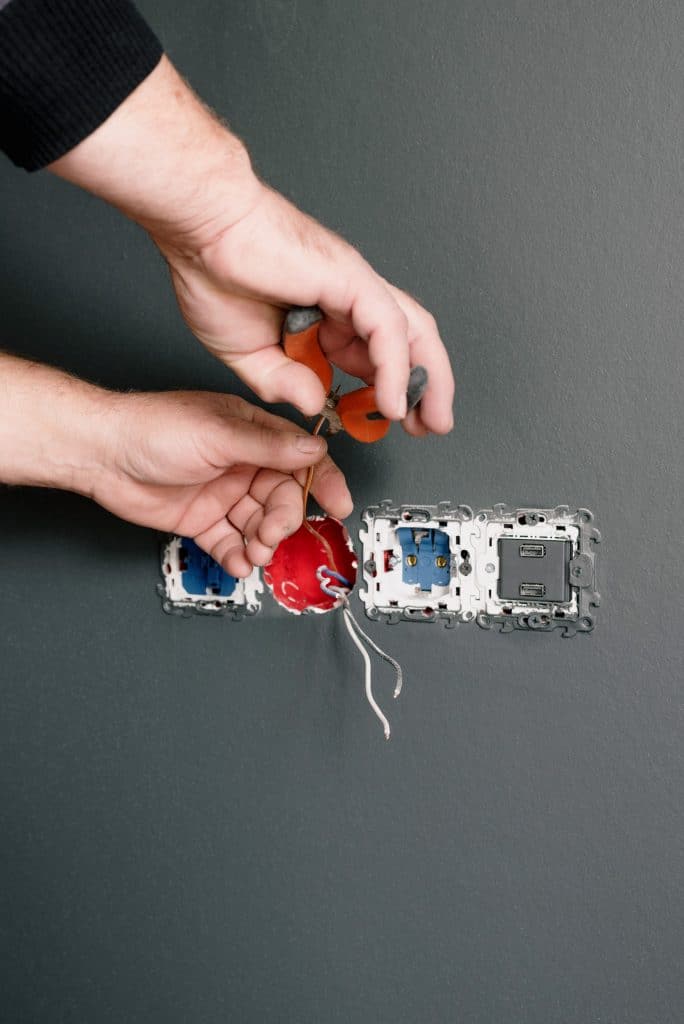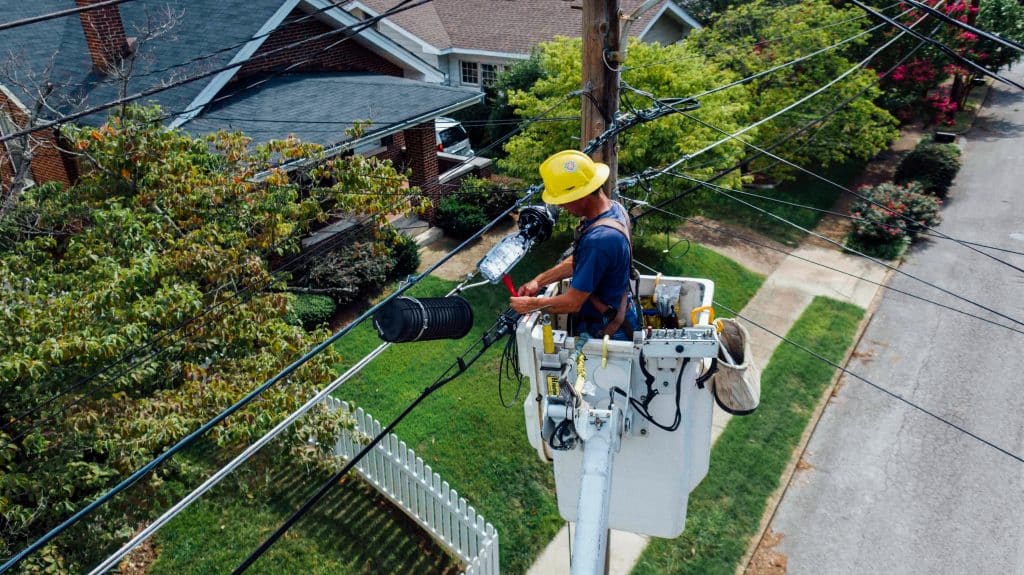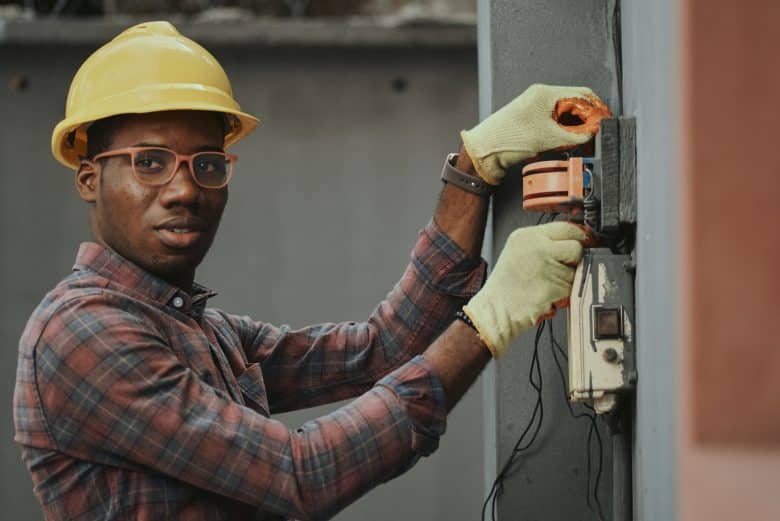Every day, our lives revolve around electricity. From the day we open up the lights till watch TV shows at nighttime. Everything works because of electricity. One of the greatest discoveries of all time, electricity plays an integral part in our daily lives.
Introduction
During ancient times, the human race survived with candles and lanterns. But, due to the development and growth, electricity changed our lives. Even after the advancements, underdeveloped countries still suffer from a shortage of electricity.
Any form of energy, when trapped and not handled properly, can result in hazardous accidents. Electric shock, physical burns, physiological damage- all these can result in death.
While our house is surrounded by electricity throughout, we barely think about the dangers of it. Unfortunately, a careless moment can lead to an injury or even destroying your home.
According to the United States Consumer Product Safety Commission, roughly 31,000 home electrical fires are reported every year, while there are approximately 180 cases that involve electrocution or other electricity-related incidents. Yes, this is how dangerous electricity can be if not taken care of precisely.
When it comes to electrical safety, it’s crucial to consider all aspects of your home, including areas you might not immediately think of. For instance, if you have a hot tub, it’s essential to ensure that the wiring is correctly installed and maintained to prevent potential hazards. Professional hot tub wiring services can provide peace of mind, knowing that your relaxation haven is not only a place of comfort but also safety.
It is necessary to take safety measures when working with electricity.

14 Best Electrical Safety Tips That Could Save Your Life
When it comes to electrical safety, taking proactive measures is essential to protect yourself and your loved ones from potential hazards. From ensuring outlets are not overloaded to using ground fault circuit interrupters (GFCIs) in wet areas, implementing safety precautions can significantly reduce the risk of electrical accidents.
For expert advice on electrical safety and maintenance, consider reaching out to professionals like those at Electrician Bolivia NC. With their knowledge and experience, they can provide valuable insights and recommendations to help safeguard your home against electrical dangers, potentially saving lives in the process.
Without any further ado, let us have a look at the safety tips to protect you and your family from electric hazards. From a coffee machine to an exclusive heat pump dryer, these electrical safety tips are important. You need to take a couple of minutes and give it a read.
Safety tip #1. When a vehicle is on fire
If your car or any other vehicle comes in contact with the power line, immediately call 911. Avoid contact with your clothes or body with the vehicle to avoid any electric shocks. When getting out of the vehicle, take small steps with your feet aligned together. As soon as you get off safely, move away at least 40 feet from the vehicle.
Safety tip #2. When a power line is drowned in water
When a power line gets drenched in water, ensure you and your family aren’t near it. Unfortunately, in most cases, the electrocution victims think the power line is a non-conductive material, and it is safe to go near. However, this is not the case. Even if it is non-energized or made with a non-conductive material, move away from it. Get help from the emergency officials.
Safety tip #3. Look for damaged electrical cables
Regularly check all power cables now and then. Ensure none of them is crushed or damaged. Moreover, never run a wire under furniture or a rug and replace them regularly as required. Here is what you need to look out for:
● Do not use chords that have exposed wiring.
● Watch out for unusual warm chords or outlets.
Safety tip #4. Unplug all unused appliances
Electric wires are like train tracks leading to the next stop. If the train can’t move any further, it can’t operate. Similarly, when electric appliances are plugged in and not in use, they bleed some energy. It is known as standby electricity loss. Unplugging unused appliances not only protects them from overheating but also cuts down on your electrical bills. Don’t believe us? You may want to hear it straight from the U.S Consumer Product Safety Commission itself.
Safety tip #5. Keep room for air circulation
Make sure to keep the electrical appliances cool while they are working. Avoid putting anything on top of electrical appliances. Moreover, ensure they are unusually warm or hot. Overheated electrical appliances can become dangerous.
Safety tip #6. Always use insulated tools
Before repairing any electrical equipment, always make sure the equipment is de-energized. With the help of an electric tester, check all the wires before proceeding with the work. It is suitable to wear insulated rubber gloves and goggles as unguarded electrical equipment can become energized unexpectedly.
Safety tip #7. Never use steel or an aluminum ladder
Because humans are more conductive than the earth, electricity flows easily in our bodies. While repairing or working near electricity lines, always use ladders made of bamboo, wooden, or fiberglass.
Safety tip #8. Unplug with care
Unfortunately, most people aren’t aware of properly unplugging a device. Make sure to pull the plastic housing on the plug to remove it from the wall socket. Pulling the cord itself can stretch the wires and connections inside, increasing the chance of electrical shock and fire.
Safety tip #9. Protect your outlets
It’s essential to make the outlets tamper-resistant to risk the reduction of an electrical fire. Remember that you can protect the outlets by investing in good outlet covers like sliding plate covers and plug caps if you have children or pets. These are essential in households and various types of properties because it helps to mitigate all types of risks and related matters.
Safety tip #10. Get help from a certified professional
If you do not follow the right approach and safety protocols, working with electricity can be extremely dangerous. Therefore, for the safety of yourself and your family, hire a professional Columbia SC electrician, or one relevant to your location, for the big stuff. Not only will they deliver high-quality work, but they will also identify any underlying issues which may lead to more significant problems in the future.

Safety tip #11. Prevent overloaded electrical circuits
One of the significant reasons for residential fires is due to overloaded electrical circuits. Do not use multi-outlet converters for several appliances, and all devices should be directly plugged into the wall outlet.
Following are some of the warning signs of an overloaded circuit:
● Warm wall plates
● A mild shock from appliances, wall switches, or outlets
● Flickering or blinking of lights
Electrical Safety tip #12. Be careful with extension cords
Extension cords are a helpful yet temporary solution. With a heavy and continuous reliance on extension cords, they deteriorate over time. The overheating of extension cords can cause fires. With that said, according to the National Fire Protection Association, approximately 48000 fires are reported in the United States of America due to malfunction or electrical fire each year.
Electrical Safety tip #13. Be cautious with flammable materials
Flammable materials like hair spray, gases, or dust must not come close to the electrical equipment that is prone to cause ignition. Flammable materials should only be used near the electrical equipment that is designed to be safe around them.
Safety tip #14. Childproof your home
Kids are curious by nature. They have a temptation to stick foreign objects into plugs and outlets. For your child’s safety, baby-proof the house by the following methods:
● Securing the wall outlets by placing plastic soldiers on them.
● If you are using extension cords, put electrical tape over the unused plugs, or it’s even better if you place them behind furniture or out of the baby’s sight.
● Store all electric appliances out of their reach.
These are a few ways to keep safe and utilize the power of electricity to the fullest extent.













That is true that you could be at risk of minor shocks. I need to get an electrician to fix the wiring in my attic. I was recently shocked the other day.
I like your electrical tips. I need new lighting in my house. I’ll have to hire an electrician.